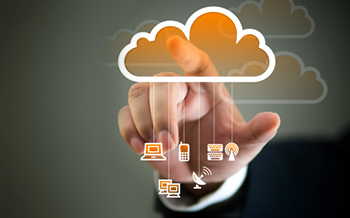
3 Things to Consider Before Jumping Into BYOD
You’ve read it time and time again. “Bring Your Own Device” isn’t a trend, it’s the future. Workplaces where companies let workers use their own devices for work purposes are the new normal. BYOD attracts new hires and lifts employee morale and productivity. But this doesn’t mean a small business owner should recklessly jump right into BYOD just because everyone else is doing it. Data and network security concerns have to be thought out, defined, and addressed in a comprehensive BYOD policy. Here are three things to consider.Cost of Support
Most businesses salivate at the thought of the money saved by having employees participate in a BYOD program. With employees using their own devices for work, there is no need to shell out thousands of dollars for desktop PCs, smartphones, tablets, and laptops. While that’s undoubtedly a huge incentive, extra support costs must also be factored in. Chances are your employees aren’t necessarily tech savvy and will need help deploying applications and performing basic yet very necessary maintenance techniques. Unless you have a dedicated IT support team, which most SMBs do not have, you will need to turn to a Managed Service Provider (MSP) in your region for support. A MSP can provide specialized expertise and leverage Mobile Device Management (MDM) tools to keep your network infrastructure and business applications monitored, secured and fully optimized.
Limited Number of Support Devices
Obviously you can’t accommodate EVERY employee-owned device. Limiting the types of devices accepted in your BYOD program will mitigate any need to pay for software or equipment upgrades for outdated devices and keep your infrastructure safer as a whole. It’s important to not be too exclusive, select a broad range of devices and their more recent releases to accommodate the varied preferences/tastes of your employees.
Legal Risks
Adopting BYOD at your workplaces will expose your company to more legal risks. Sensitive business or private client/customer data can potentially be exposed if devices are lost or stolen. The personal online habits of your employees can also increase your network’s vulnerability to viruses, phishing, or hacking schemes designed to steal such data. These increased legal risks are another reason why SMBs must take precautions such as working with a MSP that offers a solid MDM solution to ensure all employee devices are configured, deployed, managed and monitored in a manner that prioritizes data integrity and security.

Comments
Post a Comment